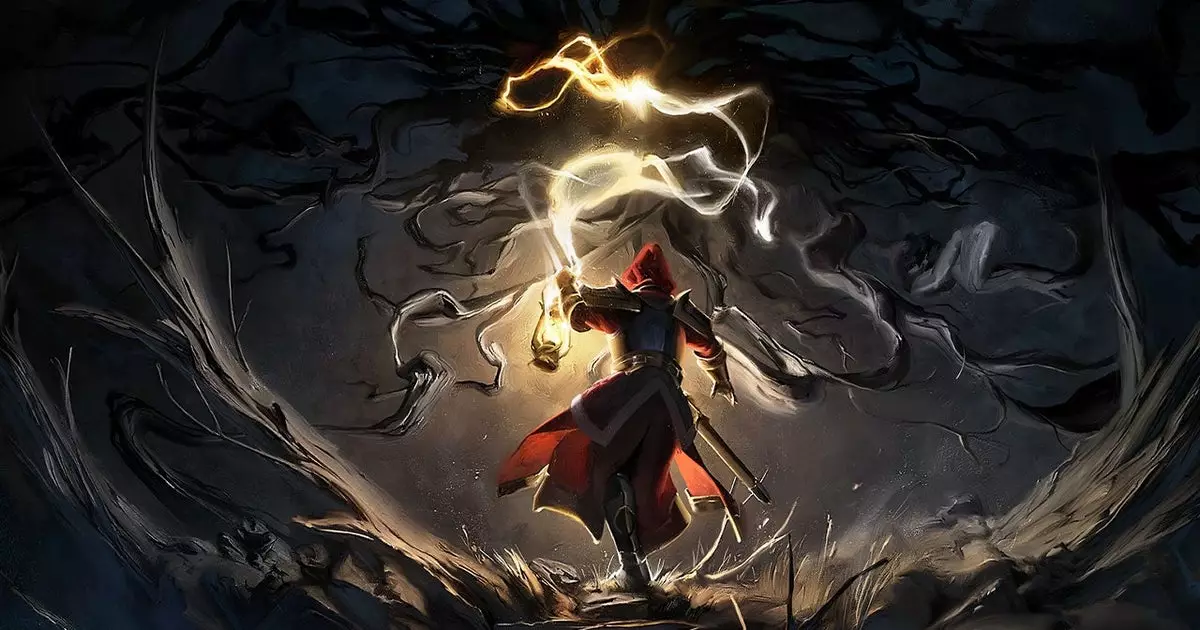When discussing the allure of indie video games, few titles evoke as potent a fascination as Mandragora: Whispers Of The Witch Tree. Initially, I approached the game with a mix of skepticism and intrigue, fearing it might simply blend into a sea of forgettable dark fantasy side-scrollers. After all, early impressions often draw parallels to works like Castlevania or Trine, which could easily cast Mandragora into the shadows of mediocrity. However, upon experiencing the full game after its official release, it’s clear that I underestimated its potential. This narrative-driven action RPG captures players with a richly crafted world and a compelling storyline that goes well beyond mere visuals.
A Dark Narrative With Depth
At its heart, Mandragora unfolds within a post-apocalyptic environment ruled by a tyrannical figure known as the King Priest. This character is reminiscent of classic antagonists, yet he adds layers of psychological complexity that compel the player to engage with the world more deeply. You take on the role of an inquisitor in Crimson City, embroiled in a morally ambiguous quest as you are thrust into a web of witchcraft, betrayal, and dark rituals. The game does not shy away from uncomfortable themes, asking players to scrutinize their motivations as the story rises from bleak shadows to haunting revelations about power dynamics and sacrifice.
The various backstories interwoven into the gameplay elevate the experience considerably. You start with a visceral encounter that illustrates the King’s cruel treatment of witches, and through your actions, you begin to uncover the intricacies embedded in this brutal society. The rich storytelling immediately establishes a connection, driving a narrative thread that’s both immersive and personal. Each decision feels consequential, hinting at a promising tapestry of character development that goes beyond the typical quest-gathering mechanic.
Visuals That Stand Out
Visually, Mandragora may initially appear to draw from familiar tropes of dark fantasy. Still, it quickly differentiates itself through its unique art direction. The character portraits radiate a sense of life and emotion, almost reminiscent of possessed art pieces. While some players may find this artistic style jarring, it serves as a remarkable fixture in creating a memorable aesthetic experience. Each frame pulsates with an ambiance that begs for exploration, leading the players to discover the multifaceted dimensions of the game’s landscapes.
The atmosphere is beautifully complemented by a haunting soundtrack that echoes the gravity of this twisted world. It not only enhances gameplay but draws you further into the somber tone of the narrative. The devs have done well to ensure that the audial experience pairs seamlessly with the visual storytelling, making the world of Mandragora all the more captivating.
Combat and Gameplay Mechanics
Gameplay mechanics in Mandragora straddle an intriguing balance between the simplicity of classic action RPGs and the intricate labyrinths of modern gaming. Each encounter is designed to require strategic thinking, emphasizing stamina management and evasion over brute force. The game’s combat system promotes active engagement rather than mere button-mashing, appealing to both seasoned gamers and newcomers alike. Players can select from various classes, each granting unique abilities that facilitate a personalized approach to battle.
Navigating the winding levels of the game reveals intricate secrets, hidden paths, and collectible items that reward exploration. The game encourages curiosity while challenging players to confront daunting foes and solve environmental puzzles, all the while weaving a narrative that feels alive and responsive to the actions taken. As players advance, they can unlock new skills and gear, adding depth and satisfaction to the ongoing grind.
The Power of Narrative Choice
Perhaps one of Mandragora’s most refreshing aspects lies in its intelligent narrative choices. Players find themselves in morally gray scenarios that compel them to reflect on their decisions and the repercussions of their actions. Witnessing the transformation of NPCs as they react to your character’s status offers glimpses of character growth and complexity often absent in other games. This attention to detail nurtures an atmosphere of immersion that transcends traditional RPG boundaries.
Through this lens of moral ambiguity and intricate narrative threads, Mandragora emerges not just as a game but as a storytelling vessel, engaging players in a quest that is as thoughtful as it is entertaining. The game accomplishes what many of its contemporaries fail to achieve: a genuinely engaging experience filled with rich lore and opportunities for personal investment in the unfolding chaos of Crimson City.
Mandragora is more than a dark fantasy side-scroller; it is a rich tapestry of narrative, exploration, and moral complexity that resonates long after the session ends. It celebrates the very essence of storytelling in games, reminding us that beneath the shadows lies a world full of possibilities waiting to be uncovered.

